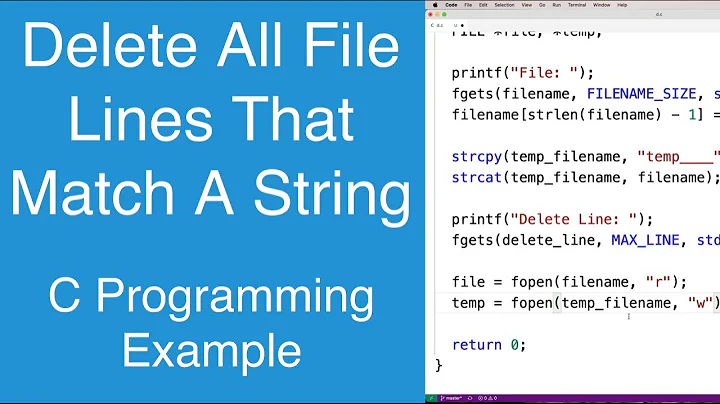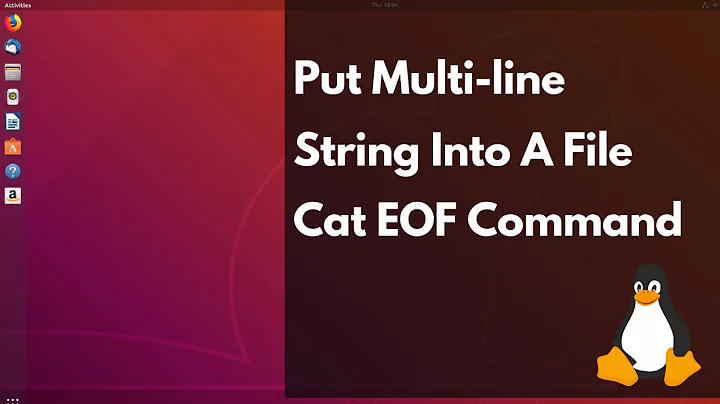cat all lines from file, which are after "KEYWORD"
Solution 1
You can do this with sed:
sed '1,/^KEYWORD$/d'
This will delete (omit) all lines from the beginning of the stream until "KEYWORD", inclusive.
Solution 2
Use sed, printing from the KEYWORD match to the end of the file, then using tail to remove the KEYWORD line.
sed -n '/KEYWORD/,$p' file | tail -1
Solution 3
An alternative might be grep in combination with the -A flag, e.g.
grep -A10000 KEYWORD file
Where 10000 is just a big number to denoted the amount of lines until the end of the file, which for your practical daily use should be enough.
Otherwise you could use the amount of lines in the file as parameter like this
grep -A$(wc -l file | cut -d' ' -f1) KEYWORD file
But that is most likely overkill (and not easier to remember than the given sed alternative)
Related videos on Youtube
Nikola
Updated on September 18, 2022Comments
-
Nikola over 1 year
I copied the example from http://www.w3schools.com/ajax/tryit.asp?filename=tryajax_first and saved it locally to test.html on my computer. Yes I did make an ajax_info.txt file too, but when I click the button nothing happens, and on w3schools works fine. Any ideas?
Here is the copied code:
<html> <head> <script type="text/javascript"> function loadXMLDoc() { var xmlhttp; if (window.XMLHttpRequest) {// code for IE7+, Firefox, Chrome, Opera, Safari xmlhttp=new XMLHttpRequest(); } else {// code for IE6, IE5 xmlhttp=new ActiveXObject("Microsoft.XMLHTTP"); } xmlhttp.onreadystatechange=function() { if (xmlhttp.readyState==4 && xmlhttp.status==200) { document.getElementById("myDiv").innerHTML=xmlhttp.responseText; } } xmlhttp.open("GET","ajax_info.txt",true); xmlhttp.send(); } </script> </head> <body> <div id="myDiv"><h2>Let AJAX change this text</h2></div> <button type="button" onclick="loadXMLDoc()">Change Content</button> </body> </html>-
Garvin over 12 yearsAjax doesn't work locally. You need to have a webserver to post to.
-
zequinha-bsb over 12 yearsI thaught the same thing but ... how about if he DOES have a webserver in his local machine for tests purposes?
-
Joel Coehoorn almost 11 yearsI could see this being really useful for log files with, say, something like a time stamp as the keyword.
-
-
Nikola over 12 yearsyes, the file did have that - Alan's post made me realize my problem. And yes, I know about jQuery, just had to do this example..
-
Bernhard almost 11 yearsYou'd need the
| tail -1trick of @suspectus to omit the first line. -
Angel Todorov almost 11 yearsYou probably mean
$instead of/$/ -
 juniper- about 9 yearsFor me this didn't work and I had to use
juniper- about 9 yearsFor me this didn't work and I had to usesed '1,/KEYWORD/d', instead. The context was a little different, but using0,would print the contents of the entire file, no matter what KEYWORD was.




